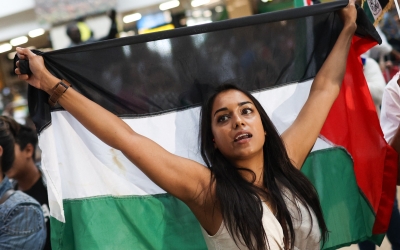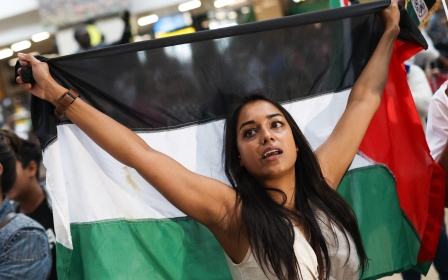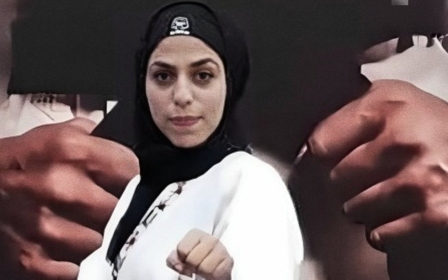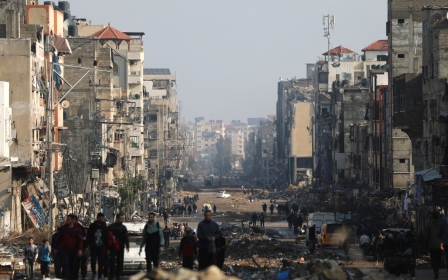War on Gaza: Bosnian author cuts ties with German publisher over ‘silence on Gaza genocide’

Bosnian author Lana Bastasic said on Monday that she believes it is her “moral and ethical” duty to terminate her contract with her German publisher over its silence on Israel's war on Gaza and the “systematic censorship” in the country.
In a post published on Instagram, the author of the novel Catch the Rabbit says that her decision comes despite the German translation of her book giving her plenty of opportunities, readings, festivals, and writing residencies.
Bastasic says that her publishers, S Fischer Verlag, have displayed examples of double standards.
“It is morally questionable because it seems blind and deaf to the suffering of the Palestinian people in the same region," she wrote in connection to the publisher's stated concern over antisemitism.
She cites the publishers’ webpage as an example, which says that it aims to shed light on the continuities of antisemitism in their books and that they oppose antisemitic thinking and action after the 7 October attack on Israel.
New MEE newsletter: Jerusalem Dispatch
Sign up to get the latest insights and analysis on Israel-Palestine, alongside Turkey Unpacked and other MEE newsletters
While this is “necessary and praiseworthy,” she says, it ignores the Israeli bombardment of Gaza which has since killed at least 24,000 people, according to the Palestinian Ministry of Health.
"It is politically irresponsible, because it only adds fuel to the fire by equating every single Jew with the current government of Israel, thus making this world all the more dangerous for the people they claim to protect,” she wrote in her statement.
“It is, finally, intellectually lazy as it comfortably delegates antisemitism to the Middle East while failing to see it in their own homeland, in the very political and cultural structures of the German state,” she added.
Bastasic also said that her decision comes amidst the silencing of Jewish artists, writers and scholars in Germany since 7 October, with some having lost jobs, or faced harassment for speaking out about Gaza.
“I cannot in good conscience continue to be published by a house that is so blatantly failing German Jews while claiming to fight antisemitism,” she added.
Witnessing the Bosnian genocide
Bastasic’s family left Croatia due to persecution in the 1940s, forcing them to relocate to the north of Bosnia and Herzegovina.
In Bosnia, Muslims were vilified and persecuted by Serbs, with buildings razed and people killed on a mass scale.
Now she says, there are plenty of parallels with what is happening in Gaza.
In an article published for The Guardian in November, she said that Israel’s carpet bombing and collective punishment of civilians and children in Gaza has plunged the enclave into a humanitarian crisis, yet any mention of this in Germany is labelled as antisemitisim.
“Any attempt at providing context and sharing facts on the historical background to the conflict is seen as crude justification of Hamas’s terror,” she wrote, saying that marches for Palestine have been stopped, the Palestinian symbols banned, and Jews showing solidarity with Palestinians silenced.
“Germany’s unwavering official support for the Israeli government’s actions leaves scant room for humanity,” she wrote, adding that she sees it as her responsibility to call out her home country, now Germany, for its “hypocrisy and acquiescence in the ethnic cleansing of Gaza”.
Around 1,140 people were killed during the 7 October attack. Israel has since killed at least 24,100 Palestinians in Gaza, and wounded more than 60,000.
Since 7 October, Gaza has been plunged into a deep humanitarian crisis, after Israel cut off all fuel, food, water, electricity and aid to the besieged enclave on 9 October.
Middle East Eye delivers independent and unrivalled coverage and analysis of the Middle East, North Africa and beyond. To learn more about republishing this content and the associated fees, please fill out this form. More about MEE can be found here.





